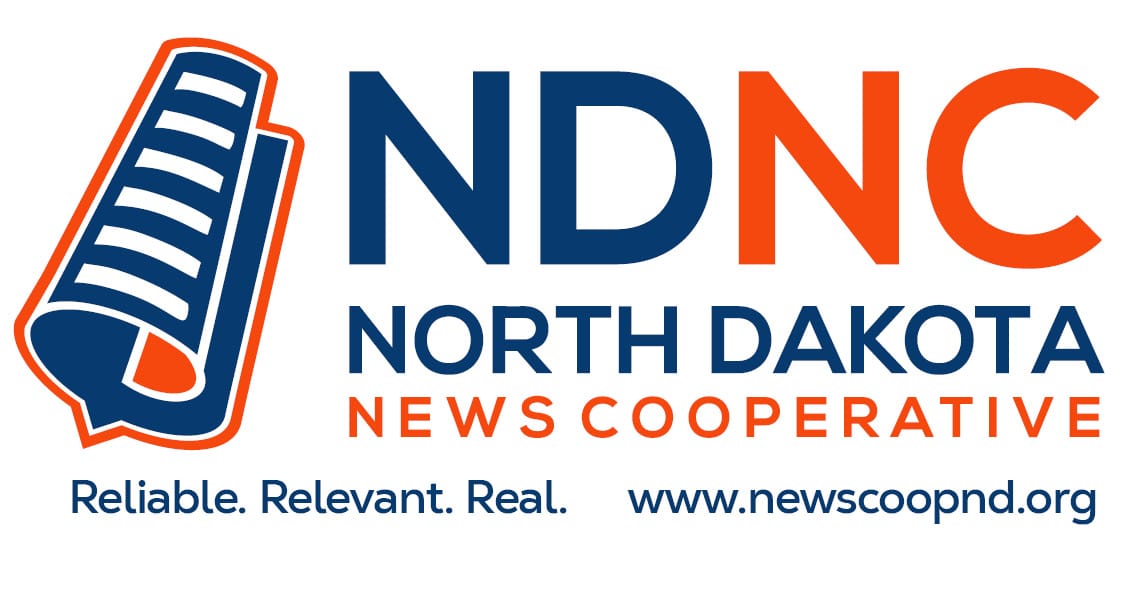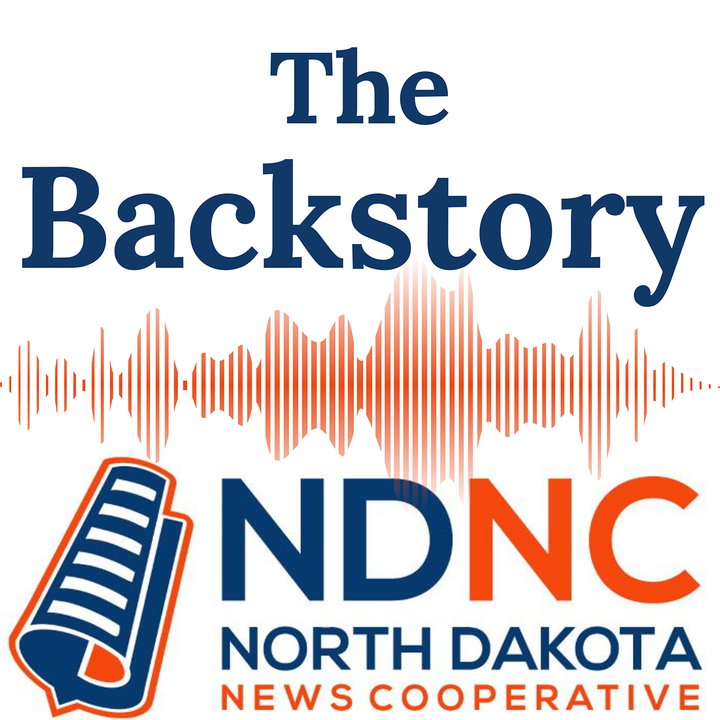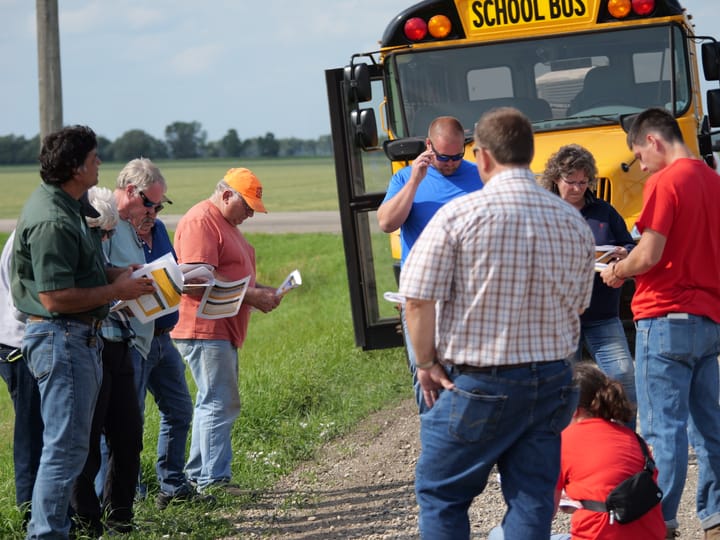United for Ukraine parolees in North Dakota awaiting fate
Decision to remove other humanitarian parolees stokes concern
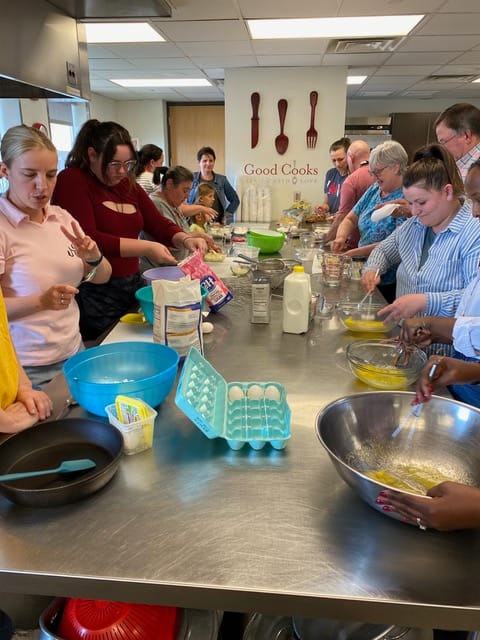
Hundreds of Ukrainians who settled in North Dakota to escape the war in their homeland are now waiting to learn whether they will be forced to leave the U.S. in the coming months.
A pending decision by the Trump administration would impact programs like the Uniting for Ukraine (U4U) program, the lives of new residents, and the communities who welcomed them.
They’ve experienced births, marriages, new employment and other life milestones while in North Dakota, but may soon face a new transition.
News that 532,000 Cubans, Haitians, Nicaraguans and Venezuelans who came to the U.S. after October 2022 under similar humanitarian parolee programs will return to their countries in April has Ukrainians, along with the groups and individuals who’ve helped them settle in, on edge.
Estimates range from around 600 to 800 Ukrainians who have settled in the state as part of the U4U program, and over 1,500 North Dakota sponsors submitted applications after the program started in April 2022 a little over a month after Russia invaded.
It is hard to get an accurate count on the numbers in the state since they aren’t managed like those migrants coming through refugee resettlement programs.
Anxiety rising
Their fate matters to businesspeople like Mitchell Page, administrator of Golden Acres Manor skilled nursing facility in Carrington.
Page employs around eight Ukrainian parolees out of a staff of around 70. Losing them would set off a scramble to staff difficult to fill positions due to long standing workforce shortages.
“They’re excellent workers and wonderful people,” Page said. “I certainly hope we don’t have to see them depart. It would leave a void at our facility, both in the workforce as well as in losing folks that we now consider friends.”
His Ukrainian employees are now pondering their future here and next moves with some anxiety.
“Some are a little anxious,” Page said. “Others are making plans based on some of the news, and looking at setting some time frames to begin working towards getting back to the Ukraine.”
Their fate also matters to the sponsors and groups who’ve supported Ukrainians to temporarily settle in North Dakota as the war in their homeland drags on for a full third year.
This includes helping them get to North Dakota, finding apartments, helping get furniture, assisting them as they looked for work and welcoming them into their communities. It’s been both a solid time commitment and a monetary investment.
Michael Southam, co-founder of the FM Volunteers for Ukraine in Fargo, a group that has helped around 200 Ukrainians settle in the area, said there’s a lot of anxiety among parolees about what comes next.
“The majority of them are very, very concerned and anxious,” Southam said, adding he was speaking in a personal capacity and not as a spokesperson for the group.
“If they’re given, you know, a 30-day window, for example, like the Cubans, to depart, there’s a lot of business to be handled. And, most importantly, where will they go? How will they live? How will they support themselves? Who is going to accept them?”
He added that some Ukrainian parolees feel a sense of betrayal regarding how the U.S. has changed course in just a couple of months from strong support of Ukraine to a less staunch commitment.
“Ukrainians that are here in a sense, lost their country, their future, their politics, their way of life by the war itself, and I feel, and I believe, that there is a feeling of a sense of betrayal now by our country,” Southam said.
Southam also said that sponsors across the country are also unhappy with how the situation has taken a turn.
“We’ve done what we are supposed to do, and we were asked by our government to do it,” he said. “And now the rug’s kind of being pulled out from under us as sponsors. These beneficiaries are now our friends, our neighbors, our coworkers. They’re members of our family to a degree.”
Return to uncertainty
Another who has lent a hand is Cory Thrall, lead pastor of Legacy Church, a United Methodist church in North Bismarck.
Thrall became involved from the start of the U4U program as families began arriving in Bismarck, helping them navigate living in a new country and community.
This included assisting with getting driver's licenses, helping with language classes, and offering cooking get-togethers where they could learn American cooking and showcase their own home dishes.
He had around a dozen families and individuals regularly attending services until recently. With the news that they may have to depart, fewer have been active because of obvious concerns and the busyness of making plans for their next steps.
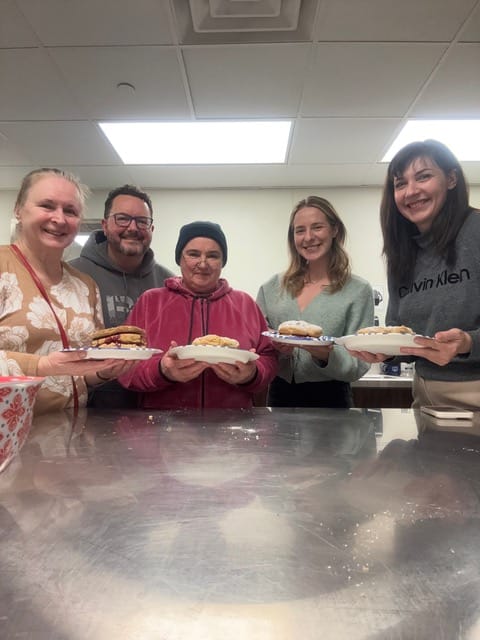
Thrall had hoped to become a sponsor himself of a single mother with two children before applications for new U4U sponsorships were ended in January.
“The city they were in was on the front and being rocketed, there was no stability for the kids, no school. They were in fear for their lives all of the time,” Thrall said.
“Until there is peace, that’s what these people would be going back to. Going back to the threat of a rocket taking out their neighborhood at a moment’s notice,” he said.

In one of its first acts, the Trump administration issued an executive order on Jan. 20 canceling all humanitarian parolee programs for the 875,000 migrants from Ukraine, Afghanistan, Cuba, Haiti, Nicaragua and Venezuela who had legal U.S. resident sponsors to support their temporary status in the country.
There are currently around 280,000 Ukrainians and 70,000 Afghans in the country through humanitarian parolee programs who await decisions on whether their stay will be extended.
Derrick Gross, executive director of CATCH, works with rural communities in welcoming immigrants and filing much-needed workforce shortages, including a number of Ukrainian parolees.
Gross said it is important to note that nearly all adult Ukrainian parolees in North Dakota are working and accompanying children are in schools here, meaning any sudden shift in their status would wipe out those positive impacts.
Differing from migrants with refugee status, humanitarian parolees are the responsibility of their sponsors and their own hard work. Parolees must secure employment and care for themselves with few benefits other than what they may get from employers.
Sen. Kevin Cramer said he was keeping tabs on the situation and is advocating against deporting Ukrainian parolees for several reasons.
“They are basically refugees from a war-torn ally,” Cramer said. “They are culturally very similar, for obvious reasons, meaning they’ve acclimated well. And perhaps most relevant is, they are very productive in an economy that is workforce starved.”
Cramer said Ukraine will need citizens to return to the country to help with reconstruction when the time comes, but he saw no reason to rush their removal.
A piece of bipartisan legislation is currently being circulated in the Senate by Republican Lisa Murkowski of Alaska and Democrat Dick Durbin of Illinois to grant Ukrainians in the U.S. temporary guest status. This would allow them to stay until the U.S. Secretary of State determines that hostilities have ceased in Ukraine and it would be safe for them to return.
Cramer said he was interested in the legislation but hadn’t yet decided if he’d support it.
Gross said people often don’t see the post-war reconstruction part of the picture when thinking about humanitarian parolees. Most will eventually return to Ukraine unless they go through other legal processes to stay in the U.S.
“The whole point was to get them out of harm's way in a situation that wasn't safe and sustainable,” Gross said of the initial aims of the U4U program.
“When the war does end, Ukraine has a massive reconstruction to undergo, and they’ll need their citizens to execute that,” he said.
The North Dakota News Cooperative is a nonprofit news organization providing reliable and independent reporting on issues and events that impact the lives of North Dakotans. The organization increases the public’s access to quality journalism and advances news literacy across the state. For more information about NDNC or to make a charitable contribution, please visit newscoopnd.org. Send comments, suggestions or tips to michael@newscoopnd.org. Follow us on Twitter: https://twitter.com/NDNewsCoop.
